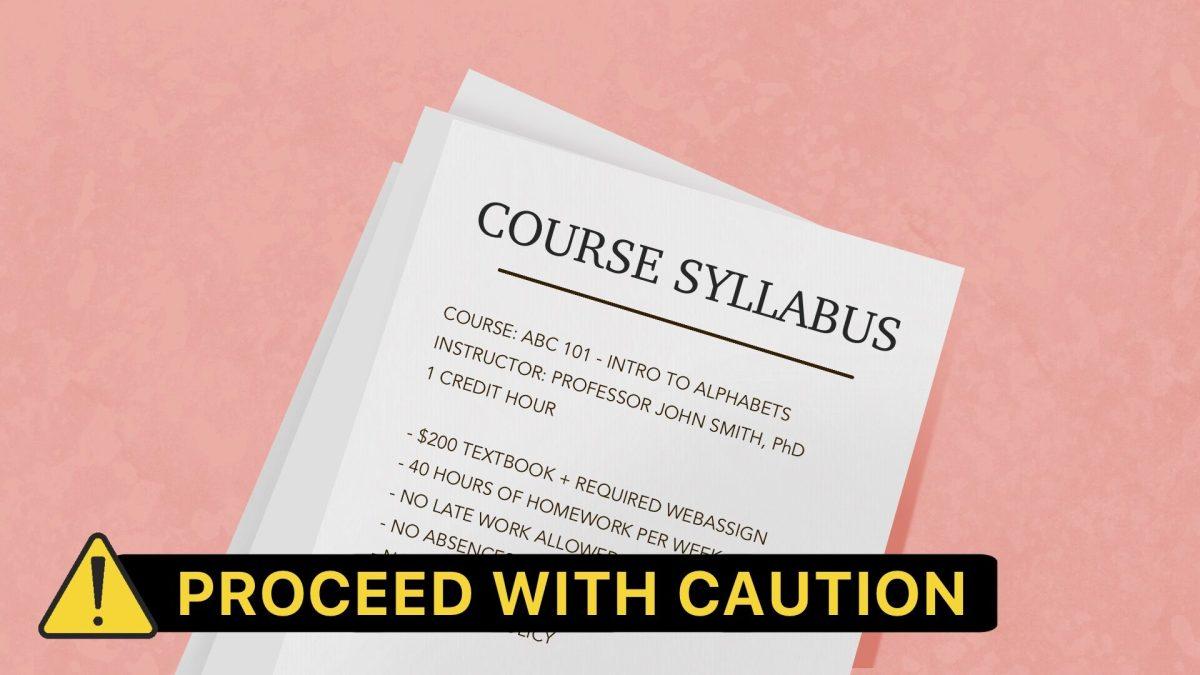There’s a lot about back to school season that stresses me out. There is so much to prepare for, but sometimes I feel like I don’t know what I am preparing for. This is because the norm is to receive the syllabus for each class on the first day of the semester, leaving me with no idea what to expect until I walk into the classroom. To ease this transition, professors should provide us with syllabi at least a week before school begins, not the day of.
Learning the professor’s expectations for the class helps students adapt to the classroom better. The rules and norms outlined in a syllabus prepare you for what the first day in that class will be like rather than walking in clueless. I personally like to prepare mentally, and knowing the rules on food in class or make-up work helps me know what I am getting into.
The rules laid out in the syllabus are especially important for people with disabilities, including myself. For example, a professor might say no food in class, but that might be a necessity for you. Instead of waiting a few days into the semester to express this need, having the syllabus beforehand helps students to know the rules and reach out to them about certain accommodations they may require.
Some accommodations may require approval or a doctor’s note. Providing a syllabus is necessary so students have time to get the proper approvals.
Additionally, some class titles are very vague, and the MyPack Portal Enrollment Wizard doesn’t magically cure any confusion with its too-often mediocre class descriptions. “The world after 1700” is a huge chunk of time to cover, so I would love to know the specific historical events we are going over. Knowing what kind of content and countries we are covering can help me focus on what we are going over that semester.
Even if a class has been taught in the past, different professors have different teaching methods and focus on different things. Simply knowing a class title doesn’t tell me anything about the workload.
Knowing how much and what type of work we are doing eases my nerves. Will it have a big project at the end of class? Do I need to prepare for a midterm? These questions are important for me to know, and I prefer to sort that out before the semester begins.
If a class does have a project, I can know the topic and due date ahead of time. When we cross that information in class, I can take special care to pay attention to it.
If too many classes have a significant workload or projects, students may need to drop a class or two. Finding this out before the semester begins can be helpful so that they have time to switch their schedule and can have a balanced workload.
Speaking of workload, I adore my planner, and I write down all my due dates in it so I don’t miss anything. Trying to manage a new schedule and homework is a lot of work on top of spending a significant amount of time writing down due dates.
If I had the syllabus during the summer, I could spend that time carefully plotting out my school year instead of choosing between planning or doing homework. I might also get a head start on coursework if I’m feeling extra motivated.
I know that I could just wait until day one to get my syllabus and suffer through the stress of a million new things all at once. But why suffer if I don’t have to? Hopefully, professors have finished forming their plans for the school year and have syllabi ready before day one. If they are available, why not take some stress off students by providing them to the class?
When it all boils down, having my syllabus and a chance to read it before class helps me succeed. I am able to learn expectations and see a map of my whole academic semester, plus prepare questions for FDOC if I have any. Providing students with syllabi at least a week before class makes a large difference in helping them prepare for the semester.














